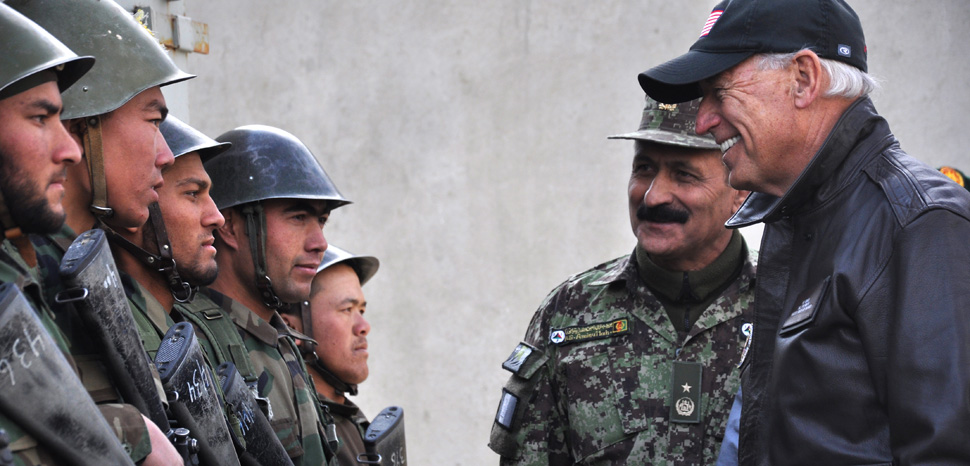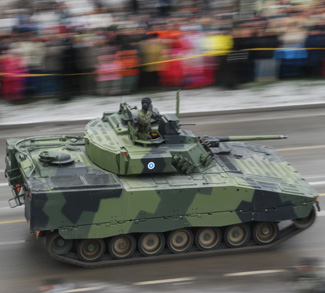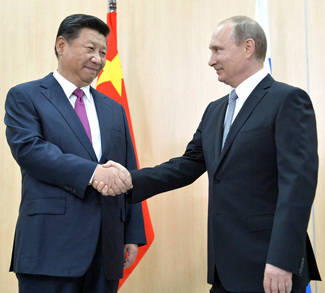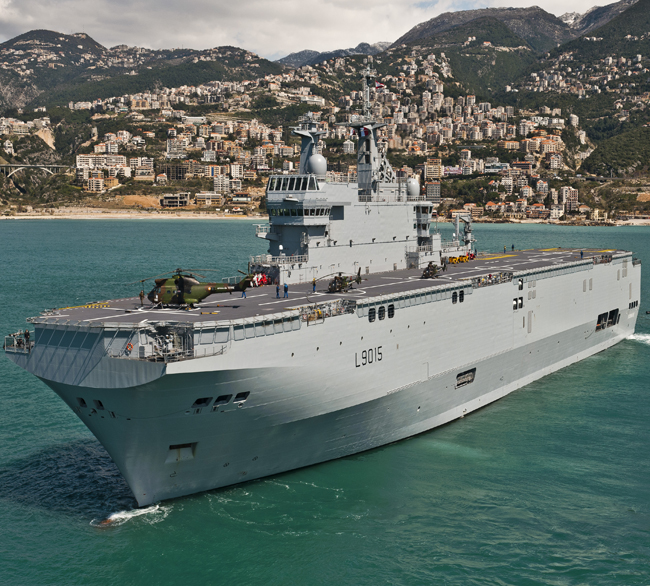The North Atlantic Treaty Organization (NATO) is in a delicate phase. The alliance has been the target of much criticism from the US President Donald Trump, who accuses the treaty allies of not contributing enough to collective security. His direct remarks have even raised doubts about the United States’ future commitment to NATO. With US elections scheduled for next month and Democrat challenger Joe Biden apparently ahead in the race, many wonder – some with hope – whether a change in the White House would result in a new course for NATO. But given the Alliance’s longstanding issues – for example the divergent views and priorities that are clearly evident in the ongoing Eastern Mediterranean dispute – it’s safe to say that many of NATO’s internal contradictions will persist regardless of who wins in November.
Differing views on NATO
President Trump has been a vocal critic of the majority of NATO member states over the issue of ‘free-riding.’ The Alliance treaty requires participant countries to spend at least 2% of their GDP on defense, but it is no secret that only a few of them reach the threshold. As such, a recurring complaint among US foreign policy circles is that most transatlantic partners under-contribute to collective security and prefer to rely on American forces and the money provided by US taxpayers. This problem has been a matter of transatlantic friction for decades, but under President Trump it became a central theme of US policy, and he has not hesitated to openly attack allies in this regard – especially Germany. While the criticism is legitimate, Trump’s direct and undiplomatic style has generated dissent in European capitals. And while some have reluctantly agreed to increase their defense budget, the issue has caused strains and even fears of a possible US withdrawal, leading to doubts over NATO’s long-term tenure. These doubts are compounded by concrete actions taken by Trump, such as his decision to relocate a significant deployment of US forces from Germany to other European countries and the US mainland. Though Trump justified the move by invoking the language of strengthened deterrence, in truth it’s more likely an attempt to punish Germany for its woefully low defense spending (1.38% of GDP in 2019, though Berlin’s defense budget is increasing dramatically of late).
On the other side, Democrat candidate Joe Biden has traditionally been an avid supporter of NATO, which he defined as “the single most important military alliance in the history of the world.” Biden reportedly harbors an intention to reverse Trump’s decision to relocate US troops out of Germany. In the past, he has advocated in favor of NATO’s eastward expansion and defended the wisdom of such a policy as recent as 2018. Back in 2009, as Obama’s vice president, Biden even affirmed that the United States would continue supporting Ukraine’s and Georgia’s bids to join NATO in spite of fierce Russian opposition. In the decade that followed this statement, enlargement was fiercely debated, with critics arguing that the costs of an alienated and hostile Russia outweighed the military benefits of the new members. Of course, the Ukraine crisis later demonstrated Moscow’s determination to keep its neighborhood from falling into the Western orbit, utilizing force if necessary. In 2018, Biden co-authored an article where he criticized the Russian government for “brazenly assaulting the foundations of Western democracy,” denouncing the invasions of Georgia and Ukraine to prevent them from joining NATO or the EU.
What to expect if Biden wins?
There are different interpretations about what Biden’s NATO policy will (or should) look like if he prevails in the November election. Some anticipate that it will revolve around a “return to normalcy” where the United States will strongly reaffirm its commitment to the Alliance and relegate Trump’s criticisms to a memory of the past. But this view has been the subject of ample criticism. Some noted that it may no longer reflect the realities of the present international system, and thus that keeping the Organization alive should not be an objective per se but rather it should be readapted to new geopolitical contexts. On the other hand, considering the competing priorities of different NATO members, others argue that the Alliance should drop the missions (like peacekeeping, counter-terrorism, or security assistance to external countries) that it accumulated since the early 90s – sometimes as a result of Washington’s own initiatives. They argue that NATO should leave them to other organizations and focus only on its original mission: collective security.
Biden’s electoral platform provides some hints on what stance he will take on the Alliance. It states that the new administration will not only seek to “restore our historic partnerships” but also “lead the effort to reimagine them for the future.” It continues: “This means keeping NATO’s military capabilities sharp, while also expanding our capacity to take on new, non-traditional threats like weaponized corruption, cyber theft, and new challenges in space and on the high seas;” but also “calling on all NATO nations to recommit to their responsibilities as members of a democratic alliance […]” The latter statement is a clear indication that Biden will seek to tackle the old free-riding problem, while the former suggests that Biden’s plan for NATO is to continue focusing on a larger interpretation of security that is not limited to traditional military threats. Here, much depends on how the Russian menace is interpreted. Even though it is not as powerful as the Soviet Union was and it has no reasonable intention to attack NATO, Russia remains a major military power with a vast nuclear arsenal and gas-derived leverage on Europe, and it views Western democracies as rivals that it actively seeks to destabilize via sophisticated disinformation campaigns. As such, Russia still represents an area of legitimate concern for NATO planners. But more importantly, there is another power that is poised to become a greater security threat in the North Atlantic area in the years to come: China.
Recent developments within NATO itself indicate that the Organization is increasingly worried about China’s rise and its potential threat to trans-Atlantic security. Apart from its growing economic presence, including the ownership or large shares in key European ports and being involved in rollouts of key 5G infrastructure, Beijing maintains close ties with Moscow and is expanding its presence in the Arctic. As a result of global warming, the polar ice cap is melting, thus opening the Northern Sea Route (NSR) as a new and much shorter alternative to traditional shipping lanes connecting Asia and Europe through the Indian Ocean. Progress is slow and navigation will remain difficult in such an extreme environment, but the shipping volume has already increased (even though it still represents a fraction of the traditional southern routes) and China has shown great interest in the NSR. In addition to these economic impacts, the new waterway also allows for the prospect of Chinese warships (including nuclear-propelled ballistic missiles submarines) easily reaching the Atlantic. As a result, NATO has recently emphasized the need to tackle the problem of security in the Arctic, and besides the traditional Russian presence it explicitly named China as a source of concern. In this, Biden and NATO seem to be on the same wavelength. In a recent interview with Reuters, one of Biden’s advisers (Julianne Smith) stated that the Biden team wants “[…] A conversation with our European allies about some of the challenges that China poses for transatlantic security.” Similarly, Biden’s official program mentions “strengthening cooperation with democratic partners beyond North America and Europe by reaching out to our partners in Asia […]”, which indicates that countering China will continue playing a major role in Washington’s grand strategy. In this, the new administration will closely resemble the preceding one in focus if not methods.
Conclusion: the problems within
In short, it can be expected that Biden will seek to renew the transatlantic partnership and America’s commitment to NATO in order to offset emerging threats like China’s rise. However, it should not be forgotten that there are also considerable divergences between NATO members, caused by their unique interests and geography. Eastern countries feel threatened by Russia; the United States is looking toward Asia; those in the High North are focused on the Arctic; and France and Italy are primarily interested in Africa and the Middle East. Moreover, there are mounting rivalries between members over the Eastern Mediterranean dispute. Turkey’s increasingly assertive behavior has alienated fellow NATO members Greece and France and this has even resulted in armed confrontations. Dealing with these internal divergences and setting a clear strategic course for the Alliance will be Biden’s greatest challenge if elected; but the task will not be easy.




